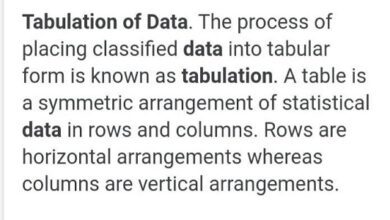Scientific hypothesis example/definition/types
Scientific hypothesis
A scientific hypothesis arises as a response to the challenge of the surrounding reality, which constantly puts us face to face with problems. Scientific hypothesis example
A hypothesis is an assumption about the presence of a certain type of connection between the studied phenomena, a certain regularity, the pattern of some events.
The concept of a hypothesis is used in science in the narrow and broad sense of the word:
- • in the narrow sense, a hypothesis is a designation of some assumption about a possible pattern or phenomenon;
- • in a broad sense, the hypothesis in its logical structure coincides with the theory, but differs from it in that in the theory the initial positions are considered as true, and in the hypothesis they have a probabilistic status. It also happens, however, that one and the same theoretical proposition can act both as a hypothesis and as an element of theory.depending on the degree of its confirmation in an experiment or in socio-historical practice and the corresponding recognition of its status by the scientific community. Refutation by practice, by contrast, rejects the hypothesis as a false assumption. However, one should not think that this can happen in a single experiment: the truth assessment of a hypothesis is achieved in a long and complex process of cognition, where the dialectics of absolute and relative truth, the relationship between truth and error, truth and its historical limitations operate. A scientific hypothesis, if it is worth something, overcomes the framework of the existing theory and makes, as it were, a breakthrough to a new vision of the world, a change in the usual stereotype of perception. The more improbable a hypothesis, the more likely it is to be true. Scientific hypothesis example
Example
It is said that the great Danish physicist Niels Bohr once questioned the truth of one of the proposed physical hypotheses solely on the grounds that it was not crazy enough to be true.
The paradox of modern science is manifested in the fact that the selection of competing scientific hypotheses according to the criterion of their originality, non-standard approach is simultaneously accompanied by the tightening of requirements for their theoretical validity within the framework of already existing science. We are, as it were, doomed to move in the mainstream of the cultural and historical tradition of science, the well-established concepts of law, cause and effect, space, time, etc. The more valuable are breakthrough ideas that have the predictive power of detecting some new properties and patterns in a certain subject area or the possibility of extrapolating them to other areas (as happened, for example, with synergetics). Scientific hypothesis example
Example
Consider the emergence of non-Euclidean geometries as an example. In the middle of the XIX century. a number of mathematicians, studying the axioms that underlie the familiar plane geometry (Euclidean geometry), suggested that it is impossible to replace the fifth postulate of Euclid, which states that through a point lying outside a straight line, only one straight line can be drawn parallel to the given one, by its negation … As a result, a number of non-standard geometries with positive and negative curvatures (the geometry of Riemann and Lobachevsky) were obtained, which laid the foundation for the study of spatial structures with an unusual topology for us and found wide application in modern physics and cosmology. Here we are dealing with the case when the initial position was not confirmed, but the results obtained turned out to be extremely significant. Hypotheses in the field of social life are of particular value. Thus, the studies of the British economist John Maynard Keynes (1883-1946) made it possible to predict periodic recessions in economic activity and, accordingly, take preventive measures to reduce their negative consequences. The hypothesis of the Russian scientist Alexander Leonidovich Chizhevsky (1897-1964) about the connection of epidemic and other diseases with solar activity makes it possible not only to prepare in advance for the onset of epidemics of influenza and other viral diseases, but also to plan preventive measures against unexpected myocardial infarctions, strokes, etc. take preventive measures to reduce their negative consequences. The hypothesis of the Russian scientist Alexander Leonidovich Chizhevsky (1897-1964) about the connection of epidemic and other diseases with solar activity makes it possible not only to prepare in advance for the onset of epidemics of influenza and other viral diseases, but also to plan preventive measures against unexpected myocardial infarctions, strokes, etc. take preventive measures to reduce their negative consequences. The hypothesis of the Russian scientist Alexander Leonidovich Chizhevsky (1897-1964) about the connection of epidemic and other diseases with solar activity makes it possible not only to prepare in advance for the onset of epidemics of influenza and other viral diseases, but also to plan preventive measures against unexpected myocardial infarctions, strokes, etc. Scientific hypothesis example
A fundamental feature of scientific hypotheses in the field of social relations is the ability to change the matrices of social behavior of the broad masses of the population, depending on their belief in the truth of certain hypothetical ideologized (pseudoscientific) theoretical constructions (National Socialism, Marxism, other social movements). This implies the need for extreme caution in assessing the degree of reliability of public forecasts, a special responsibility of the authors of theoretical constructions.
Types of hypotheses
| Classification criteria | Characteristic |
| Functional role in the cognitive process | 1. A descriptive hypothesis serves to describe the composition and structure of a certain subject area and the properties inherent in the objects of this area.
and relationships. A special place is occupied by existential hypotheses that admit the existence of any objects and (or) phenomena, for example, the assumption of the existence of hypothetical particles of matter – quarks – in physics, an intermediate link between an ape and a person in biology. 2. An explanatory hypothesis is put forward about the causes of the appearance of an object or phenomenon and about the possible mechanism (law) of its functioning, for example, a hypothesis about the origin of life on Earth, about the causes of solar and lunar eclipses Scientific hypothesis example |
| Commonality |
|


